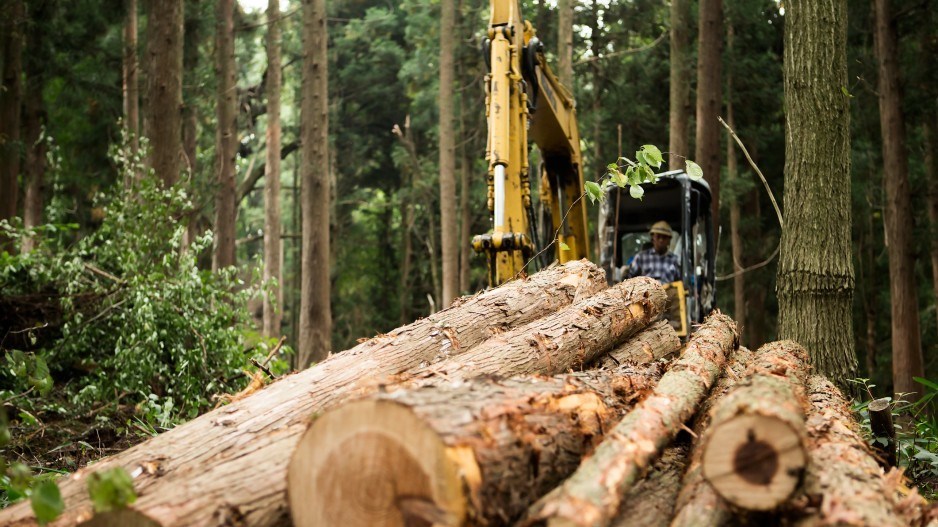A new report warns the impacts on B.C. of higher duties on Canadian softwood lumber recently imposed by the U.S. will extend beyond the province's forestry sector.
The U.S. Department of Commerce had issued a preliminary anti-dumping rate in March of 20.07 per cent, up from 7.66 per cent set three years before, which is in addition to the countervailing duties of 6.74 per cent. But this past Friday, the American department raised anti-dumping duties on Canadian softwood to 20.56 per cent.
A declining B.C. forest industry, accelerated by sharply rising U.S. duties, poses risks not only to jobs and timber revenues, but also to infrastructure and rural access, according to Rising US Tariffs on Forest Products and the Systemic Risks Facing British Columbia, published this month by Vancouver-based advocacy group Resource Works.
“Forestry in B.C. has long been more than just timber and mills; it quietly supports infrastructure, rural access and emergency response in many regions,” said Jerome Gessaroli, the report’s author and a senior fellow at the Macdonald-Laurier Institute and the Montreal Economic Institute, in a Monday statement.
“If that foundation erodes, it could trigger disruptions in everything from wildfire suppression to Indigenous economic development.”
The report notes that forestry companies have built and maintained an estimated 620,000 to 700,000 kilometres of remote roads across B.C.
As the sector contracts, many of these roads could be closed or fall into disrepair, which would affect access to remote communities, backcountry tourism, emergency services, and mining and pipeline operations.
“If even 25 per cent of forestry-built roads were closed or abandoned ... B.C. could lose around 125,000 kilometres of backcountry access,” the report stated.
Gessaroli said it's important for governments, industry and Indigenous groups to collaborate on identifying critical roads and securing sustainable funding for their maintenance.
“Tying road maintenance primarily to stumpage revenues leaves infrastructure vulnerable during downturns, whether from tariffs, fibre supply issues or climate-related impacts,” the report stated.
A shrinking forestry sector could also cause disruptions to residue supply chains, including wood chips, sawdust, biomass and chemical byproducts.
"A 30 per cent drop in sawmill throughput would remove an estimated four million cubic metres of low-cost chips from the system. Mills would be forced to substitute more expensive whole-log chips or trucked-in U.S. imports,” the report stated.
Gessaroli added that a further decline in the forestry industry would also reduce demand for rail, port and trucking services, likely resulting in rising per-tonne costs for remaining shippers.
“The loss of forestry is not just a sectoral problem—it’s a systems problem. Roads, services and local economies across the province are all linked to this industry,” said Stewart Muir, CEO of Resource Works, in a statement.
“If policymakers don’t plan ahead, we risk avoidable crises in public safety, infrastructure and rural resilience.”
–With a file from the Canadian Press

